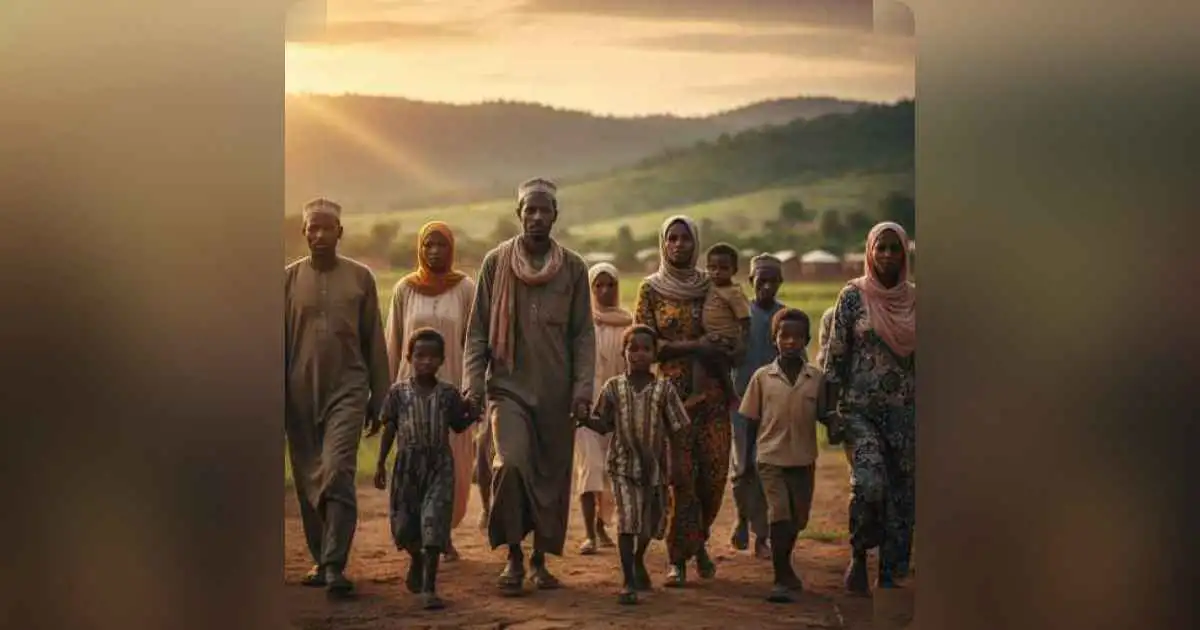The journey into exile is often sudden, traumatic, and fraught with uncertainty. For hundreds of thousands of Sudanese individuals and families, the grim reality of conflict has necessitated seeking refuge in neighboring countries. Leaving behind homes, livelihoods, and cherished memories, the immediate challenge becomes survival, followed swiftly by the complex task of rebuilding a semblance of life in an unfamiliar land. This guide aims to illuminate the path forward, offering crucial information on legal rights, available resources, and the vital role of the Sudanese diaspora in countries like Egypt, Chad, Ethiopia, and others.
Understanding Your Status: The Foundation of Rights
The first, and perhaps most critical, step upon reaching a new country is to understand and formalize your legal status. This determines the protections and aid you are eligible to receive.
-
- Asylum Seeker vs. Refugee: Initially, individuals fleeing conflict are typically classified as "asylum seekers." This means you have formally applied for protection, but your claim has not yet been fully determined. Once your claim is processed and approved, you are recognized as a "refugee," granting you specific rights under international and national laws. The 1951 Refugee Convention and its 1967 Protocol are the foundational international instruments, complemented by national legislation in host countries.
- The Role of UNHCR: The United Nations High Commissioner for Refugees (UNHCR) is the primary international body responsible for protecting refugees. In many host countries, UNHCR offices or their implementing partners are the first point of contact for registration, assistance, and guidance through the asylum process. Registering with UNHCR is paramount; it's your official record of having sought refuge and unlocks access to various forms of aid.
How-To: Register as an Asylum Seeker/Refugee
-
- Locate the Nearest UNHCR Office or Partner: As soon as it is safe to do so, find the closest UNHCR registration point or the office of an implementing partner in your host country (e.g., Caritas, local refugee aid organizations). Information is usually available through local community networks, aid workers, or embassy contacts if accessible.
- Gather Identification Documents: Bring any available identification documents (national ID, passport, birth certificate, family book). Even if these are unavailable, you can still register, but the process might require more verification.
- Attend Registration Interview: You will undergo an interview where you explain why you fled Sudan. Be honest and provide as much detail as possible. This information is confidential.
- Receive Documentation: Upon successful registration, you will receive an asylum seeker certificate or refugee ID card. This document is crucial for your protection and accessing services. Keep it safe and always carry it with you.
Accessing Essential Resources: Beyond Survival
Once registered, a range of resources becomes potentially available, though their scope and accessibility vary significantly by country and local capacity.
-
- Shelter and Food: Initial assistance often includes emergency shelter, food aid (rations or cash assistance), and non-food items (blankets, hygiene kits). These are usually facilitated by UNHCR and its partners.
- Healthcare: Access to healthcare is a fundamental right. Many host countries offer primary healthcare services to refugees, sometimes free or at a subsidized cost. UNHCR can provide referrals to clinics and hospitals. Understanding the local healthcare system and any specific challenges (like language barriers or cost of specialized care) is important.
- Education: Ensuring continuity of education for children is a top priority. Depending on the host country, refugee children may be able to enroll in local public schools or attend informal learning centers set up by NGOs. For adults, vocational training and language courses can be vital for integration and future livelihoods.
- Legal Aid: Navigating immigration laws, legal protections, and family reunification processes can be complex. Free legal aid services for refugees are often provided by specialized NGOs or pro bono lawyers, offering assistance with documentation, asylum appeals, and other legal challenges.
- Livelihoods and Employment: The ability to work is crucial for self-reliance and dignity. Host country policies on refugee employment vary. Some countries offer the right to work, while others impose restrictions. Vocational training and micro-enterprise support programs can help refugees develop skills and start small businesses.
The Power of the Diaspora: A Network of Support
The Sudanese Diaspora communities in host countries are invaluable assets for newly arrived refugees. These established communities offer more than just material aid; they provide cultural familiarity, emotional support, and crucial navigational advice.
-
- Cultural Bridge: Connecting with fellow Sudanese can alleviate feelings of isolation and help maintain cultural identity in a new environment.
- Information Sharing: Diaspora networks are often the best source of real-time information on local resources, job opportunities (even informal ones), legal aid providers, and community events.
- Emotional and Social Support: Sharing experiences, stories, and cultural traditions fosters a sense of belonging and helps cope with the psychological toll of displacement. Mutual support groups and community centers often emerge organically within these communities.
- Advocacy: The diaspora can play a critical role in advocating for refugee rights and needs with local authorities and international organizations.
Navigating Challenges: Patience and Resilience
The path of a refugee is rarely easy. You will encounter bureaucratic hurdles, potential discrimination, and moments of despair.
-
- Language Barriers: Learning the local language is one of the most significant steps toward independence and integration. Seek out language classes or practice with local community members.
- Cultural Differences: Be open to understanding and adapting to the cultural norms of your host country while preserving your own heritage.
- Mental Health: The trauma of displacement can have lasting effects. Do not hesitate to seek mental health support if available. Many NGOs offer psychosocial counseling services.
- Patience and Persistence: Processes for asylum, aid, and resettlement can be slow. Maintain patience, follow instructions carefully, and persist in your efforts to access support.
Rebuilding a life in exile is a testament to immense human strength and resilience. By understanding your rights, actively seeking available resources, and embracing the support of both official bodies and the vibrant Sudanese diaspora, a new foundation can be laid, brick by brick, towards a future of stability and hope.
Frequently Asked Questions (FAQs)
1. Q: Can I choose where I want to seek asylum?
A: While you can express a preference, international law dictates that asylum must be sought in the first safe country you reach. The principle of non-refoulement means you cannot be returned to a country where your life or freedom would be threatened. UNHCR generally expects individuals to register in the country where they first arrived seeking protection.
2. Q: What happens if I lose my refugee ID card?
A: Losing your ID card is serious. You should report it immediately to the nearest UNHCR office or relevant national refugee authority. They will guide you Through the process of obtaining a replacement. It's vital to have valid identification for your protection and to access services.
3. Q: Can I travel back to Sudan once I am registered as a refugee?
A: Generally, no. Traveling back to your country of origin (Sudan in this case) while holding refugee status can jeopardize your protection. It may be interpreted by authorities as an indication that you no longer fear persecution, potentially leading to the cessation of your refugee status. Always consult with UNHCR or a legal aid provider before considering such a trip.
4. Q: How long does the asylum process take?
A: The duration of the asylum process varies significantly by country and the complexity of individual cases. It can range from a few months to several years due to high caseloads and administrative procedures. Patience is crucial, and continuous follow-up with UNHCR or your legal representative is advised.
5. Q: Are there specific programs for women and children refugees?
A: Yes, UNHCR and many humanitarian organizations prioritize the protection and specific needs of women, children, and other vulnerable groups. These programs often include specialized psychosocial support, protection from gender-based violence, safe spaces for children, educational initiatives, and targeted livelihood support. Inquire about such programs during your registration or at local aid centers.
Conclusion: A Journey of Hope and Resilience
The path of a refugee is undeniably arduous, marked by immense challenges and moments of profound uncertainty. Yet, it is also a journey that showcases the extraordinary strength, adaptability, and unwavering spirit of individuals and communities. By actively engaging with official bodies like UNHCR, meticulously understanding and asserting your rights, and leveraging the invaluable support of the Sudanese diaspora, you are not merely surviving; you are beginning the courageous act of rebuilding. Every step taken towards formalizing your status, accessing an education, securing a livelihood, or simply finding connection within your community, is a testament to your resilience and a brick laid in the foundation of a new future. Remember, you are not alone on this journey. Hope and solidarity are powerful forces that will continue to guide you towards stability and renewed purpose.
Related article: 10 Promising Career Opportunities Shaping the Future Workforce




